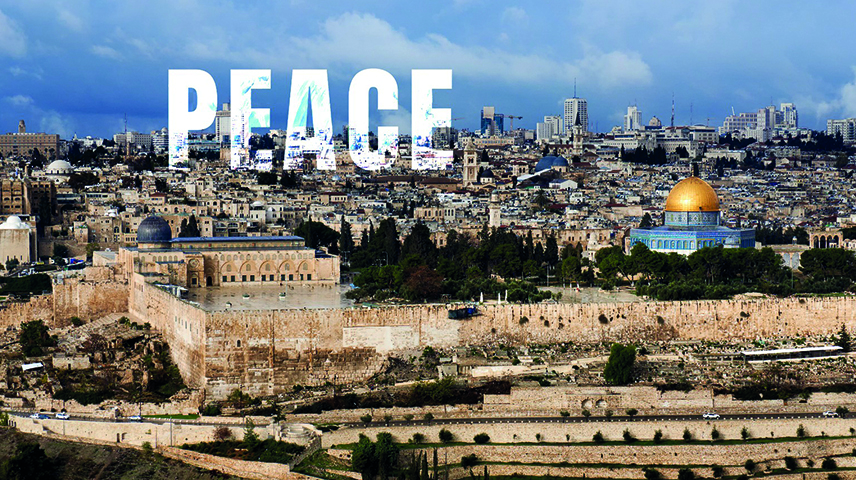In light of the ongoing bloodshed and the tense Gaza standoff, it is imperative that an audacious attempt be made to completely resolve the Palestinian-Israeli conflict. This can only be achieved by proposing a comprehensive take-it-or-leave-it peace initiative. Such an initiative must address the immediate crisis at hand through a ceasefire cessation of cross-border skirmishes, along with addressing humanitarian aspects, aid provision, and the exchange of hostages. Moreover, it must delve into the core issue of the Palestinian-Israeli conflict by putting an end to Israeli occupation and realizing a two-state solution.
Ambitious Diplomacy
Incremental measures will no longer suffice to defuse the situation. The severity of tensions and the profound distress call for bold, ambitious, and creative diplomacy. The absence of a substantial resolution will perpetuate the cycle of violence and will lead to further bloodshed. It is not a question of if but when another outbreak of violence will occur, particularly given the existential political decisions facing Hamas and Israeli leaders, rendering a return to the pre-war status quo inconceivable. Both sides would have to claim complete victory or seek revenge at the expense of the other, neither of which is feasible. The proposed initiative, therefore, needs to be substantial enough to prompt a significant shift in the political dynamics within both sides, encouraging them to move beyond revenge and ostracize uncompromising leaders if necessary.
The Alternatives: Peace or Revenge
The alternatives are polar opposites: either achieve full peace or drown in self-consuming waves of revenge and retribution. This would enable the Palestinians to believe that the tragic loss of over 10000 casualties in Gaza was not in vain and for the Israelis to argue that despite the human losses, they have now ensured their security once and for all. The initiative proposed aims to fulfill the national identity aspirations of Palestinians and Israelis through a two-state solution along the 1967 borders, with minor mutually agreed modifications. It must offer precise solutions for the status of Jerusalem and for the Palestinian right of return or compensation. The plan should incorporate detailed security protocols to protect both sides from surprise attacks in the West Bank, Gaza, or Israel.
Furthermore, the initiative should also affirm the Arab Peace Initiative adopted by the Arab League summit in Beirut in 2002, emphasizing that ending the Israeli occupation of Arab territories would pave the way for normal Israeli relations with the Arab nations at large. Contemporary documents detailing Arab-Israeli negotiations are replete with comprehensive formulas and compromises on all these aspects. Yet, the one thing lacking was the political will of the respective political leaderships. Simply put, the proposed non-negotiable initiative here would address both the root cause of the conflict-the Israeli occupation- and the aftermath of the Gaza Crisis.
Potential Sponsors
With very few exceptions, the decisions of regional leaders have determined war and peace in the Middle East. Therefore, the most favorable option would be for an Arab state to sponsor this initiative. Alternatively, the Arab League Emergency Summit in Riyadh could adopt this initiative. However, the ongoing violence and continued civilian casualties may render regional sponsorship unfeasible. A second choice for sponsorship would have been the United States, given its prominent role in the region since the 1973 war, but its inability to even engage in dialogue with Russia and its unwavering support for Israel makes this second alternative option untenable and disqualifies the US it as an impartial sole broker of peace. Another possibility is for the co-sponsorship of the initiative by the United Nations Secretary-General Antonio Guterres, Chinese President Xi Jinping, and US President Joe Biden. While this may seem unusual at first, the diversity of sponsors may make the initiative more palatable for the parties involved despite the recent tensions between Israeli officials and Guterres.
The two-state solution is an offshoot of UN resolutions, and the organization has a significant role and presence in the region and has embraced the basic tenets of the peace process. China maintains good relations with all Arab countries, as well as with Israel. It recently brokered the Saudi-Iranian arrangements, and its political appetite may have expanded, as was inferred by its special envoy to the Middle East, Zhai Jun, who recently emphasized support for a peace process and the two-state solution. The US may initially be concerned that this would come at the expense of American primacy in the region, but it could also provide an opportunity for a mutually beneficial constructive dialogue that extends beyond the Middle East.
Certainly, success is not guaranteed, especially in the highly volatile Middle East and amidst tentative relations between major world powers. However, repeating practices of the past or succumbing to complacency will only lead to grievances and more bloodshed. The hard choice is to embark on substantial diplomatic efforts against all odds aimed at resolving the root causes of the conflict or have the region witness a tsunami of vengeful violence between combatants and civilians alike.


